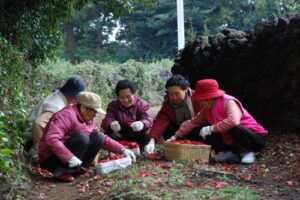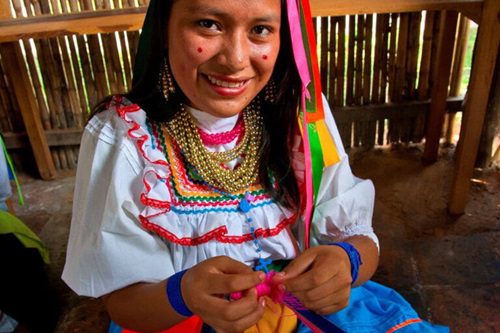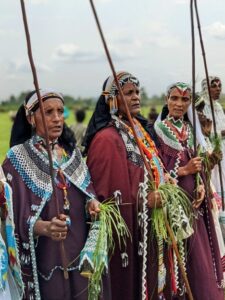![]() In an era where the discourse on empowerment and sustainability is more vibrant than ever, an extraordinary global movement is reshaping the landscape of rural tourism. Spearheaded by indomitable women entrepreneurs, villages across continents are witnessing a renaissance, not just as quaint retreats, but as epicenters of economic revitalization and social innovation. This Women’s Month, the spotlight shines brightly on these trailblazers, whose efforts are supported by the UN Tourism’s Best Tourism Villages initiative, showcasing a collective journey towards a more inclusive and resilient future.
In an era where the discourse on empowerment and sustainability is more vibrant than ever, an extraordinary global movement is reshaping the landscape of rural tourism. Spearheaded by indomitable women entrepreneurs, villages across continents are witnessing a renaissance, not just as quaint retreats, but as epicenters of economic revitalization and social innovation. This Women’s Month, the spotlight shines brightly on these trailblazers, whose efforts are supported by the UN Tourism’s Best Tourism Villages initiative, showcasing a collective journey towards a more inclusive and resilient future.

Dongbaek, renowned for its camellia flower cultivation utilised in cooking and beauty products, is a shining example of resident-led tourism.
At the heart of this transformation is the principle that empowering women is not just a matter of gender equality but a cornerstone of community development. Sandra Carvão, the UN Tourism’s Chief of Tourism Market Intelligence and Competitiveness, eloquently articulates the essence of this movement. She emphasizes that by nurturing women-led enterprises through sustainable tourism practices, we’re not only championing gender equality but also unlocking the profound potential of women as catalysts for comprehensive community advancement.
The narrative of this global movement is rich with stories of innovation, resilience, and community spirit. In the lush Peruvian mountains of Lamas, indigenous Lamista women are redefining heritage preservation. Through “Awadora,” a collective brand, these artisans safeguard their cultural legacy and propel their community towards sustainable economic growth. The initiative represents a bold step in community-driven tourism, fueled by the entrepreneurial spirit of 46 indigenous artisans from five Quechua communities.
Similarly, in Lephis, Ethiopia, the Mishike Handicraft Association is a beacon of empowerment and environmental stewardship. This association is not just facilitating women’s economic participation by leveraging local resources like grass and bamboo. Still, it is also pioneering sustainable tourism practices that cherish the village’s biodiversity.
The narrative extends to Creel, Mexico, where Rarámuri communities are weaving a vibrant tapestry of cultural heritage and economic diversification. Women-led gastronomy and weaving experiences are tourist attractions and pillars of biocultural preservation and empowerment.
In the Republic of Korea, Dongbaek is blossoming under female leadership. The Dongbaek Village Mill, through camellia product production and immersive cooking classes, is cultivating a sustainable economy while celebrating local food culture. This effort is complemented by the Dongbaek Town Preservation and Research Council, which is dedicated to advancing the community’s tourism sector.
Xidi, China, is a testament to the harmonious blend of heritage protection and economic development. Through the Anhui Girls’ Agritainment initiative, the UNESCO-listed village offers immersive homestay experiences that promote local culture and empower women and youth in the tourism industry.
In Oku-Matsushima, Japan, the Nadeshiko Kaisei Juku initiative illustrates the transformative power of education in tourism. The initiative has catalyzed the transformation of local markets into flourishing enterprises by providing entrepreneurship seminars for women, contributing significantly to the village’s resilience and social progress.
These stories are not just isolated instances of success; they are part of a global tapestry of change, weaving together the threads of economic growth, social progress, and environmental sustainability through the lens of women-led entrepreneurship in rural tourism. They serve as a testament to the untapped potential of rural communities and the pivotal role women play in unlocking this potential. As we celebrate these achievements, we also acknowledge the path ahead – a journey towards a more inclusive, resilient, and sustainable future powered by the spirit and innovation of women entrepreneurs across the globe.
Written by: Anne Keam

















